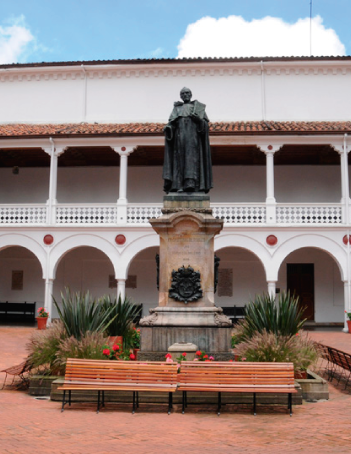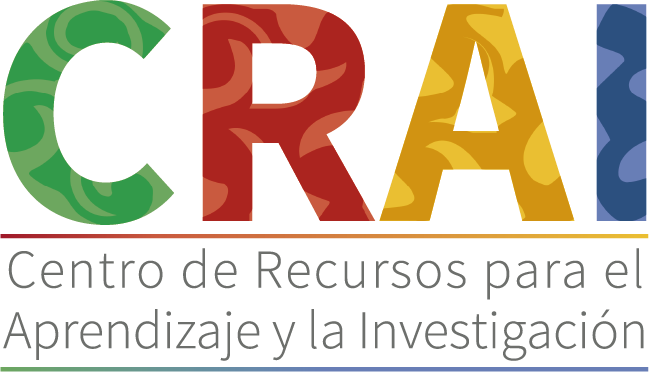| 000 -ENCABEZADO |
|---|
| Número de control [NR] |
07324cam a2200373Mc 4500 |
| 001 - NÚMERO DE CONTROL |
|---|
| control field |
ocn474068799 |
| 005 - FECHA Y HORA DE LA ÚLTIMA TRANSACCIÓN |
|---|
| control field |
20180516090127.0 |
| 008 - DE LONGITUD FIJA DE DATOS DE ELEMENTOS - INFORMACIÓN GENERAL |
|---|
| Elementos de longitud fija [NR] |
180516s2008 nju 000 0 eng d |
| 020 ## - NUMERO INTERNACIONAL NORMALIZADO PARA LIBROS [R] |
|---|
| Número Internacional Normalizado del libro [NR] |
9780691133133 |
| 020 ## - NUMERO INTERNACIONAL NORMALIZADO PARA LIBROS [R] |
|---|
| ISBN Cancelado/ Invalidado [R] |
0691133131 |
| 020 ## - NUMERO INTERNACIONAL NORMALIZADO PARA LIBROS [R] |
|---|
| Número Internacional Normalizado del libro [NR] |
9780691143224 |
| 020 ## - NUMERO INTERNACIONAL NORMALIZADO PARA LIBROS [R] |
|---|
| ISBN Cancelado/ Invalidado [R] |
0691143226 |
| 029 1# - OTRO SISTEMA DE NÚMERO DE CONTROL (OCLC) |
|---|
| OCLC library identifier |
DKDLA |
| System control number |
810010-katalog:007112437 |
| 035 ## - NUMERO DE CONTROL DEL SISTEMA [R] |
|---|
| Número de control del sistema [NR] |
(OCoLC)474068799 |
| 040 ## - FUENTE DE CATALOGACION [NR] |
|---|
| Agencia de catalogación original [NR] |
Co-BoUCM |
| Idioma de catalogación [NR] |
spa |
| Quien Cataloga |
Saul Niño |
| Quien Clasifica |
Saul Niño |
| 041 ## - CODIGO DE IDIOMA [R] |
|---|
| Código de idioma para texto/pista de sonido o título separado [R] |
Español |
| 082 04 - NUMERO DE CLASIFICACION DECIMAL DEWEY [R] |
|---|
| Número de clasificación [R] |
303.60973 |
| Número de la edición [NR] |
20 |
| 100 1# - ASIENTO PRINCIPAL--NOMBRE PERSONAL [NR] |
|---|
| Nombre personal [NR] |
Collins, Randall |
| ID Autoridad |
92462 |
| 245 10 - MENCION DE TITULO [NR] |
|---|
| Título [NR] |
Violence |
| Parte restante del título [NR] |
a micro-sociological theory |
| 260 ## - PUBLICACION, DISTRIBUCION, ETC. (PIE DE IMPRENTA) [R] |
|---|
| Lugar de publicación, distribución, etc. [R] |
Princeton, N.J. |
| Nombre del editor, distribuidor, etc. [R] |
Princeton University Press |
| Fecha de publicación, distribución, etc. [R] |
2008 |
| 300 ## - DESCRIPCION FISICA [R] |
|---|
| Extensión [R] |
563 páginas |
| 505 0# - NOTA DE CONTENIDO CON FORMATO PREESTABLECIDO [R] |
|---|
| Nota de contenido con formato preestablecido [NR] |
1. The micro-sociology of violent confrontations -- Violent situations -- Micro-evidence : situational recordings, reconstructions, and observations -- Comparing situations across types of violence -- Fight myths -- Violent situations are shaped by an emotional field of tension and fear -- Alternative theoretical approaches -- Historical evolution of social techniques for controlling confrontational tension -- Sources -- Preview -- The complementarity of micro and macro theories. |
| 505 0# - NOTA DE CONTENIDO CON FORMATO PREESTABLECIDO [R] |
|---|
| Nota de contenido con formato preestablecido [NR] |
Pt -- 1. The dirty secrets of violence -- 2. Confrontational tension and incompetent violence -- Brave, competent and evenly matched?. The central reality : confrontational tension -- Tension/fear and non-performance in military combat -- Low fighting competence -- Friendly fire and bystander hits -- Joy of combat : under what conditions?. The continuum of tension/fear and combat performance -- Confrontational tension in policing and non-military fighting -- Fear of what?. 3. Forward panic -- Confrontational tension and release : hot rush, piling on, overkill -- Atrocities of war -- Caveat : the multiple causation of atrocities -- Asymmetrical entrainment of forward panic and paralyzed victims -- Forward panics and one-sided casualties in decisive battles -- Atrocities of peace -- Crowd violence -- Demonstrators and crowd-control forces -- The crowd multiplier -- Alternatives to forward panic -- 4. Attacking the weak : I. Domestic abuse -- The emotional definition of the situation -- Background and foreground explanations -- Abusing the exceptionally weak : time-patterns from normalcy to atrocity -- Three pathways : normal limited conflict, severe forward panic, and terroristic torture regime -- Negotiating interactional techniques of violence and victimhood -- 5. Attacking the weak : II. Bullying, mugging, and holdups -- The continuum of total institutions -- Mugging and holdups -- Battening on interactional weakness. |
| 505 0# - NOTA DE CONTENIDO CON FORMATO PREESTABLECIDO [R] |
|---|
| Nota de contenido con formato preestablecido [NR] |
Pt -- 2. Cleaned-up and staged violence -- 6. Staging fair fights -- Hero versus hero -- Audience supports and limits on violence -- Fighting schools and fighting manners -- Displaying risk and manipulating danger in sword and pistol duels -- The decline of elite dueling and its replacement by the gunfight -- Honor without fairness : vendettas as chains of unbalanced fights -- Ephemeral situational honor and leap-frog escalation into one-gun fights -- Behind the facade of honor and disrespect -- The cultural prestige of fair and unfair fights -- 7. Violence as fun and entertainment -- Moral holidays -- Looting and destruction as participation sustainers -- The wild party as elite potlatch -- Carousing zones and boundary exclusion violence -- End-resisting violence -- Frustrated carousing and stirring up effervescence -- Paradox : why does most intoxication not lead to violence?. The one-fight-per-venue limitation -- Fighting as action and fun -- Mock fights and mosh pits -- 8. Sports violence -- Sports as dramatically contrived conflicts -- Game dynamics and player violence -- Winning by practical skills for producing emotional energy dominance -- The timing of player violence : loser-frustration fights and turning-point fights -- Spectators' game-dependent violence -- Offsite fans' violence : celebration and defeat riots -- Offsite violence as sophisticated technique : soccer hooligans -- The dramatic local construction of antagonistic identities -- Revolt of the audience in the era of entertainers' domination. |
| 505 0# - NOTA DE CONTENIDO CON FORMATO PREESTABLECIDO [R] |
|---|
| Nota de contenido con formato preestablecido [NR] |
Pt -- 3. Dynamics and structure of violent situations -- 9. How fights start, or not -- Normal limited acrimony : griping, whining, arguing, quarreling -- Boasting and blustering -- The code of the street : institutionalized bluster and threat -- Pathways into the tunnel of violence -- 10. The violent few -- Small numbers of the actively and competently violent -- Confrontation leaders and action-seekers : police -- Who wins?. Military snipers : concealed and absorbed in technique -- Fighter pilot aces : aggressively imposing momentum -- In the zone versus the glaze of combat : micro-situational techniques of interactional dominance -- The 9/11 cockpit fight -- 11. Violence as dominance in emotional attention space -- What does the rest of the crowd do?. Violence without audiences : professional killers and clandestine violence -- Confrontation-minimizing terrorist tactics -- Violent niches in confrontational attention space -- Epilogue : practical conclusions. |
| 520 8# - NOTA DE RESUMEN, ETC. [R] |
|---|
| Nota de sumario, etc. [NR] |
In the popular misconception fostered by blockbuster action movies and best-selling thrillers - not to mention conventional explanations by social scientists - violence is easy under certain conditions, like poverty, racial or ideological hatreds, or family pathologies. Randall Collins challenges this view in "Violence", arguing that violent confrontation goes against human physiological hardwiring. It is the exception, not the rule - regardless of the underlying conditions or motivations. Collins gives a comprehensive explanation of violence and its dynamics, drawing upon video footage, cutting-edge forensics, and ethnography to examine violent situations up close as they actually happen - and his conclusions will surprise you. Violence comes neither easily nor automatically. Antagonists are by nature tense and fearful, and their confrontational anxieties put up a powerful emotional barrier against violence. Collins guides readers into the very real and disturbing worlds of human discord - from domestic abuse and schoolyard bullying to muggings, violent sports, and armed conflicts. He reveals how the fog of war pervades all violent encounters, limiting people mostly to bluster and bluff, and making violence, when it does occur, largely incompetent, often injuring someone other than its intended target. Collins shows how violence can be triggered only when pathways around this emotional barrier are presented. He explains why violence typically comes in the form of atrocities against the weak, ritualized exhibitions before audiences, or clandestine acts of terrorism and murder - and why a small number of individuals are competent at violence. "Violence" overturns standard views about the root causes of violence and offers solutions for confronting it in the future |
| 546 ## - NOTA DE IDIOMA [R] |
|---|
| Nota de idioma [NR] |
Texto en inglés |
| 650 #7 - ASIENTO SECUNDARIO DE MATERIA - TERMINO TEMATICO [R] |
|---|
| Término temático o nombre geográfico como elemento de entrada [NR] |
Violencia |
| Subdivisión general [R] |
Aspectos psicologícos |
| Subdivisión geográfica [R] |
Estados Unidos |
| 9 (RLIN) |
422 |
| 650 #7 - ASIENTO SECUNDARIO DE MATERIA - TERMINO TEMATICO [R] |
|---|
| Término temático o nombre geográfico como elemento de entrada [NR] |
Conflictos sociales |
| 9 (RLIN) |
11592 |
| 650 #7 - ASIENTO SECUNDARIO DE MATERIA - TERMINO TEMATICO [R] |
|---|
| Término temático o nombre geográfico como elemento de entrada [NR] |
Resolución de conflictos |
| 9 (RLIN) |
23645 |
| 650 #7 - ASIENTO SECUNDARIO DE MATERIA - TERMINO TEMATICO [R] |
|---|
| Término temático o nombre geográfico como elemento de entrada [NR] |
Identidad social |
| 9 (RLIN) |
17122 |
| 650 #7 - ASIENTO SECUNDARIO DE MATERIA - TERMINO TEMATICO [R] |
|---|
| Término temático o nombre geográfico como elemento de entrada [NR] |
Valores sociales |
| 9 (RLIN) |
26082 |
| 942 ## - ELEMENTOS DE ENTRADA AGREGADOS (KOHA) |
|---|
| Sistema de clasificación |
|
| Tema principal |
Psicología |
| Tipo de ítem principal el descrito en 300a |
Libro |
| Edición |
10 |
| Clasificación |
303.60973 |
| Parte restante de la signatura top. |
C712v |

Escuela de administración
Facultad de Jurisprudencia
Facultad de Ciencias
Escuela de Ciencias
Escuela de Medicina
Facultad de Economía
Facultad de Estudios
Facultad de Creación
Escuela de Ingeniería,
Otras Ofertas
 Historia y símbolos
Historia y símbolos
 Enfoque estratégico
Enfoque estratégico
 Gobierno universitario
Gobierno universitario
 Playbok - Nuestros pilares de transformación
Playbok - Nuestros pilares de transformación
 Protocolo de seguridad
Protocolo de seguridad
 Archivo histórico
Archivo histórico
 Portafolio de becas, descuentos y apoyo financiero
Portafolio de becas, descuentos y apoyo financiero
 Casa UR
Casa UR






 Proyección social
Proyección social Filantropía
Filantropía Hagámoslo posible
Hagámoslo posible








